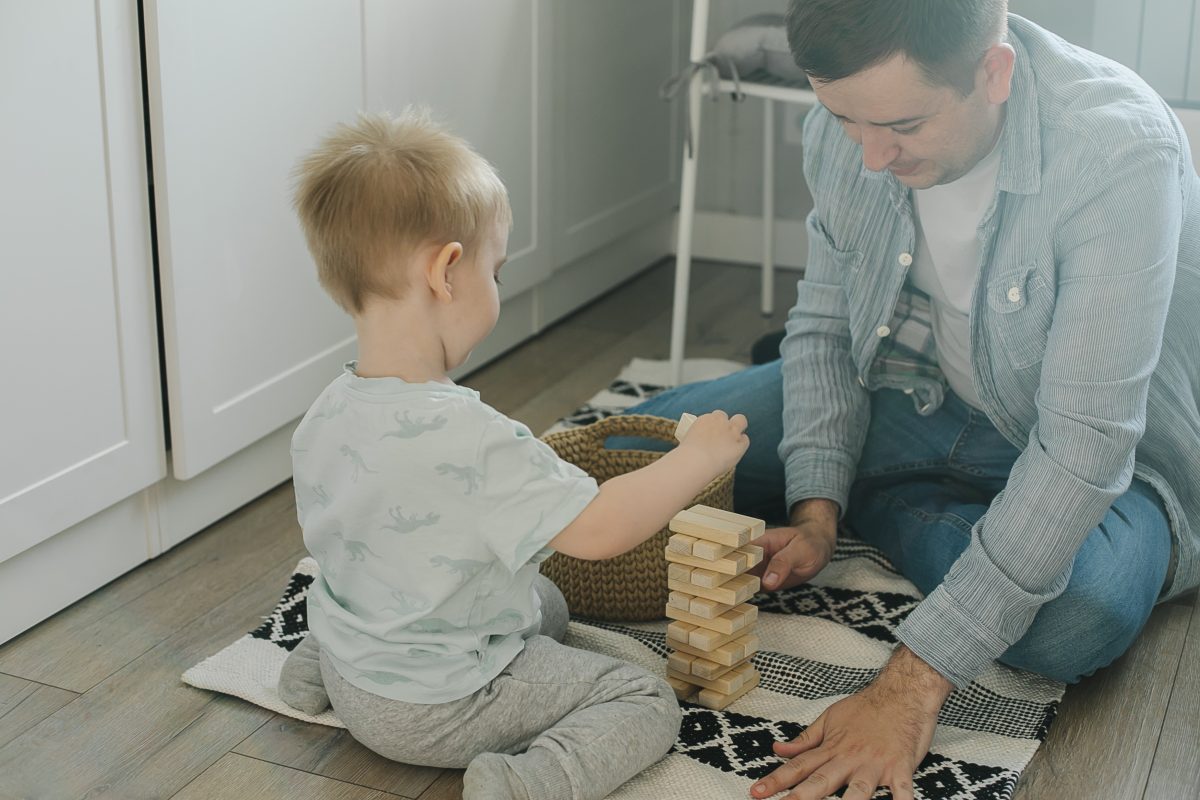
Tasmanian tigers, Yetis and fathers playing with their children – it’s not as rare as our language indicates. Photo: Anikona.
A curious thing happened when I had my baby – other women, especially those of an older generation, started telling me about how ‘hands-on’ their male partners were/are as parents.
“Your father was really hands-on,” Mum told me proudly.
A family friend went to great pains to impress on me just how ‘involved’ her husband was, even doing night feeds and changing nappies. A friend my own age gushed about how her husband ‘helps’ with the baby, even though he’s back at work.
I have to admit these comments have left me bewildered and a little frustrated. Would anyone refer to a mother as being ‘hands-on’ or ‘helpful’ in caring for their own child?
I think we desperately need to change the way we talk about fathers and their relationships with their children (in the context of heterosexual relationships) – not only to normalise men parenting but also to avoid trivialising the role fathers play in their children’s lives.
Frankly, I find it offensive to see my partner’s role reduced to a novelty. Not only because I want the importance of his parenting to be recognised, but also because I equally want to normalise mothers not carrying the overwhelming caring and mental load associated with children.
I want to continue to have time for my work, hobbies and friends as much as my partner does and to balance these things with caring for my child. That’s only feasible if we share the load.
However, further to that, I want to see society value and accept fathers in their role as parents. This will never happen if we keep speaking about it using language that sidelines their contributions.
I would be lying if I claimed that everything in my household is genuinely equal when it comes to parenting. I have more flexible work and, therefore, spend more time with my son. I have always been the person who coordinates groceries and household supplies, and now that includes baby things. I coordinate his wardrobe, put his name on waitlists for childcare, manage most of his medical appointments, etc.
Some of this is personality-based, but there’s definitely an underlying link to gender norms that we’ve both internalised – after all, our personalities aren’t created in a vacuum.
In the couples around me, I see this same pattern emerge with sometimes an added element of mistrust and weaponised incompetence. Friends admit that they take on the lion’s share of kid tasks because they don’t trust their male partners to perform the tasks to the same standard.
There’s also an impulse that some of us feel as new mothers to be the ones to manage the baby all the time – I find myself automatically assuming that I’ll feed, bathe and settle my son at night while my partner usually cooks, but I never actually asked my partner if he was happy with that division of labour.
So there’s no doubt that the gendered division of parenting is influenced by more than just the way we talk about it. But it’s still a good place to start if we want to change the narrative and support more equal caring roles.




















